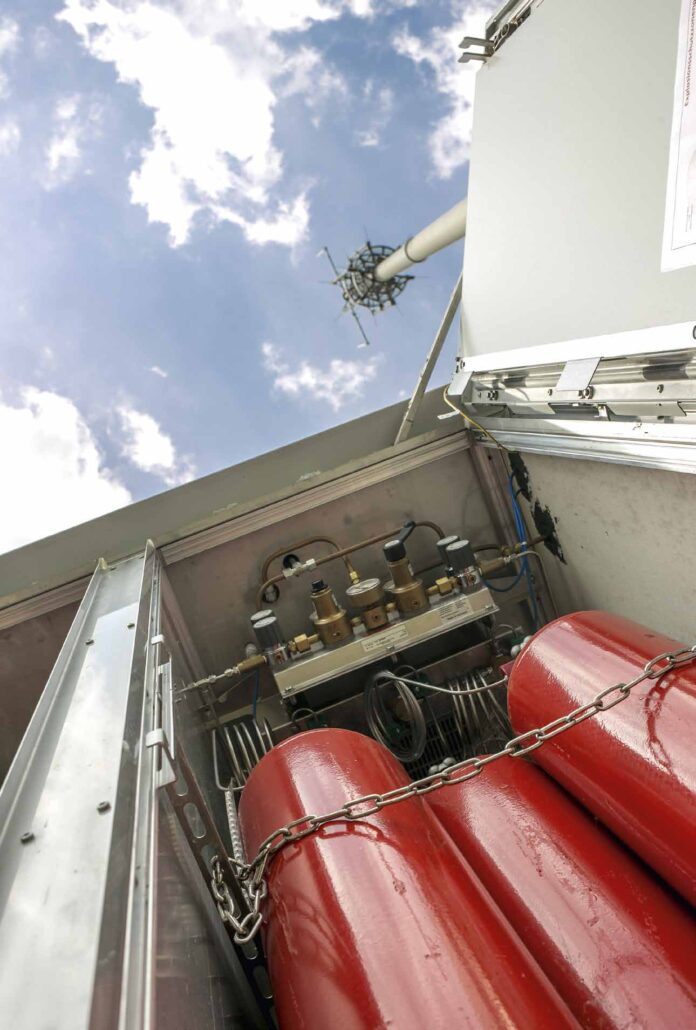With the fuel cell come opportunities
15.01.2020
Article Deutsches Ingenieurblatt, 12-2019, Energy.
“Even if the fuel cell has not yet achieved a market breakthrough – its potential is great and is being realized. Mobility remains a key driver of development and public perception in 2019. Nevertheless, the fuel cell has opened up far more areas of application to date. For example, it is no longer possible to imagine the power supply of critical infrastructures without it”. Wolfgang Axthammer

Value-added effects from the fuel cell are not limited to the industry itself, but extend into many other areas through efficiency leaps. Germany is in a good technological position, as growing sales and export figures show. However, the site must hold its own as it continues to develop. For engineers, above all, this opens up sustainable future prospects and new job profiles.
Burning for the cell
The fuel cell industry is now at the point where the solar industry in Germany was a good 15 years ago. It is important that the same mistakes are not repeated in this field of renewable energies. Here, too, Germany was a technological pioneer until production seemingly suddenly shifted to Asia. The export share of the fuel cell industry is currently more than 80 percent. According to the German Engineering Federation (VDMA), sales from the production of fuel cells are expected to reach around 120 million euros this year, which would almost double last year’s sales.
The high export share is a reliable indicator of the technological strength of the component manufacturers from our country. At the same time, exports of materials and know-how highlight the better market conditions elsewhere – in North America and Asia, for example. This is not least due to political decisions. China, Korea and Japan have announced that they will rely more on fuel cell technology in the next two years, especially in the mobility sector. Germany should be prepared for this. The industrial use of hydrogen is on the verge of a breakthrough. Europe is still a technological leader. However, this must also be used in terms of industrial policy. The discussions about climate change and the statement that the coal phase-out is not possible without hydrogen are currently putting fuel cell technology in the spotlight. Worldwide, manufacturers delivered an estimated 74,000 fuel cell systems last year. This already corresponds to an electrical output of more than 800 megawatts.
More than mobility
Successes have already been achieved with fuel cell technology in intralogistics such as in food retailing or at airports. In America, more than 25,000 fuel cell-powered industrial trucks are already on the road every day in the logistics/intralogistics sector. And in the automotive industry in particular, the fuel cell is seen as having a great future in terms of sustainable drive technologies. There are currently 75 hydrogen filling stations in Germany, and the aim is to have 100 by the beginning of 2020.
Experts estimate that 2,000 hydrogen filling stations nationwide should be sufficient to enable fuel cell-powered automobility. After all, when it comes to CO2-neutral drive concepts, it’s fuel cells and battery technology that play the most important role, not the internal combustion engine. Electricity produced by wind farms can be converted into hydrogen, stored and distributed to filling station networks.
Despite all the joy about the progress in mobility, the significance of the fuel cell in other areas should not be ignored. This is the case, for example, with the power supply of critical infrastructures and so-called blackout systems, with which plants and networks in the gas supply or in telecommunications are protected. Today, this is almost always done with diesel generators. Here, a switch to fuel cells makes sense and is climate-neutral.
A few examples: Deutsche Telekom recently launched a globally unique project for mobile communications coverage in rural areas. For the first time, a self-sufficient mobile radio site in Dettelbach will be permanently powered by a fuel cell, which in turn will be fed with bio-methanol. The pilot project can certainly be understood as a test for an environmentally friendly continuous operation of mobile radio stations – and always in places where there is no or not yet any power supply.
It is already impossible to imagine the BOS digital radio, a uniform and powerful radio network for all authorities and organisations with security tasks (BOS) in Germany, which also does not permit any power failures, without the fuel cell. Around 700 fuel cell systems are already replacing diesel generators there. The suppliers of fuel cells for such applications have been organized in the Clean Power Net (CPN) industry network for almost ten years now. The CPN is funded as an innovation cluster by the Federal Ministry of Transport and Digital Infrastructure.
Development prospects for engineers
The advance of fuel cell technology is not without impact on the market for qualified specialists. Currently there are just 1,500 jobs in the German fuel cell industry. Specialists are in great demand and the chances of promotion are good. A look at sub-sectors of the industry reveals just how much room there is for improvement. If the number of fuel cell heating appliances and mains replacement systems installed and exported in Germany increases to 90,000 by 2024 and sales grow to 700 million euros, the number of employees in this sector alone is likely to climb from the current 1,500 to around 2,700.
The added value of the fuel cell is large
The potential for value creation in the field of fuel cell technology is also far from exhausted. For example, power to gas, a process in which water is split into hydrogen and oxygen by electrolysis using electricity, offers particular potential. There is hardly any difference between fuel cells and electrolysers. Hydrogen – and thus also the fuel cell – is thus currently rightly described as the all-round talent of tomorrow’s energy supply. “Hydrogen produced by Power to Gas is ideally suited to drive forward the flexibilization of the energy system as well as the decarbonization of the transport, heat and industry sectors,” also said Dr. Marie-Luise Wolff, President of BDEW Bundesverband der Energie- und Wasserwirtschaft e.V. (German Association of Energy and Water Industries) at the BDEW symposium “Hydrogen – small molecule, great potential”.

Wolfgang Axthammer, Managing Director of NOW
GmbH; project manager in the industry network
CleanPowerNet
Link Website “Deutsches Ingenieurblatt“‘
CONTACT
Publishing house Schiele & Schön GmbH
Schlangenbader Str. 13
14197 Berlin
Phone: +49 (30) 25 37 52-10
Email: service@schiele-schoen.de
Internet: www.schiele-schoen.de
